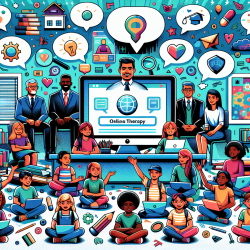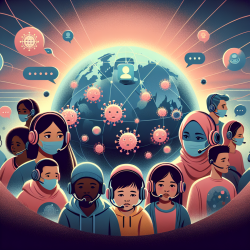Introduction
In today's rapidly evolving digital landscape, the need for effective and accessible therapy services for children has never been more pressing. As government health regulators, it is crucial to recognize the transformative potential of online therapy tools in schools. By embracing these innovative solutions, we can create better outcomes for children and support the professionals who dedicate their careers to their well-being.
The Importance of Data-Driven Decisions
As a PhD graduate in speech language pathology, I understand the importance of data-driven decisions in creating impactful therapy outcomes. The use of online therapy tools provides a wealth of data that can be leveraged to tailor interventions and track progress. By analyzing this data, therapists can make informed decisions that optimize the therapeutic process, ensuring that each child receives the most effective care possible.
Creating Tools for Success
Online therapy platforms offer a range of tools designed to enhance the therapy experience for both children and therapists. These tools include:
- Interactive Activities: Engaging digital activities that capture children's attention and make learning fun.
- Progress Tracking: Detailed analytics that allow therapists to monitor a child's progress and adjust therapy plans accordingly.
- Flexible Scheduling: The ability to schedule sessions at times that are convenient for families, reducing barriers to access.
These tools are not just about convenience; they are about creating a more effective and engaging therapy experience that meets the unique needs of each child.
The Role of Government Health Regulators
Government health regulators play a pivotal role in the adoption and implementation of online therapy services in schools. By supporting these initiatives, regulators can help ensure that children across the country have access to the highest quality therapy services. This support can take many forms, including:
- Funding: Providing financial support for schools to implement online therapy platforms.
- Policy Development: Creating policies that facilitate the integration of online therapy into existing school programs.
- Training and Resources: Offering training programs and resources to help therapists effectively utilize online tools.
By taking these steps, government health regulators can help bridge the gap between traditional therapy methods and modern digital solutions, ensuring that all children receive the care they need.
Conclusion
The future of children's therapy in schools lies in the effective use of online tools. As government health regulators, it is your responsibility to support this transition and ensure that every child has access to the best possible care. By embracing online therapy, you are not only enhancing the therapy experience for children but also empowering therapists to deliver more personalized and effective interventions.
Let's take the next step together and create a brighter future for our children.










